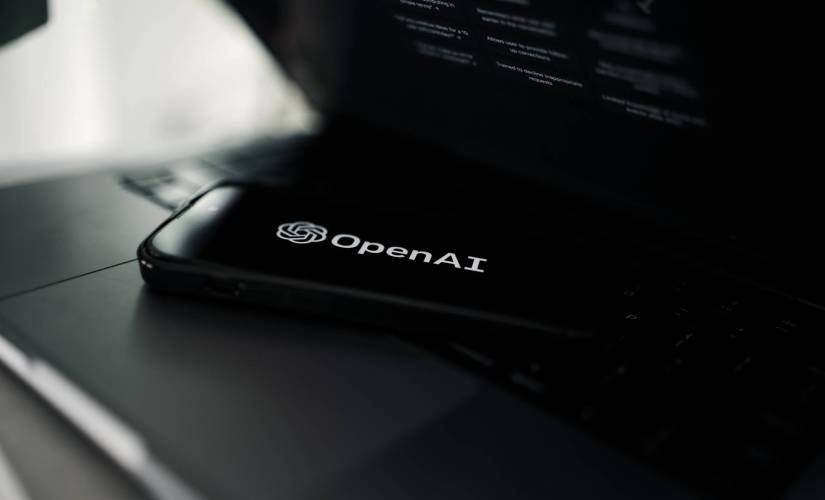Quite unexpectedly, Dave Willner, OpenAI’s head of trust and safety, recently announced his resignation. Willner, who has been in charge of the AI company’s trust and safety team since February 2022, announced his decision to take on an advisory role in order to spend more time with his family on his LinkedIn profile. This pivotal shift occurs as OpenAI faces increasing scrutiny and struggles with the ethical and societal implications of its groundbreaking innovations. This article will discuss OpenAI’s commitment to developing ethical artificial intelligence technologies, as well as the difficulties the company is currently facing and the reasons for Willner’s departure.
Dave Willner’s departure from OpenAI is a major turning point for him and the company. After holding high-profile positions at Facebook and Airbnb, Willner joined OpenAI, bringing with him a wealth of knowledge and experience. In his LinkedIn post, OpenAI CEO Willner thanked his team for their hard work and reflected on how his role had grown since he was first hired.
For many years, OpenAI has been one of the most innovative organizations in the field of artificial intelligence. The company became well-known after its AI chatbot, ChatGPT, went viral. OpenAI’s AI technologies have been successful, but this has resulted in heightened scrutiny from lawmakers, regulators, and the general public over their safety and ethical implications.
CEO of OpenAI Sam Altman has spoken out in favor of AI regulation and ethical growth. In a March Senate panel hearing, Altman voiced his concerns about the possibility of artificial intelligence being used to manipulate voters and spread disinformation. In light of the upcoming election, Altman’s comments highlighted the significance of doing so.
OpenAI is currently working with U.S. and international regulators to create guidelines and safeguards for the ethical application of AI technology, so Dave Willner’s departure comes at a particularly inopportune time. Recently, the White House reached an agreement with OpenAI and six other leading AI companies on voluntary commitments to improve the security and reliability of AI systems and products. Among these pledges is the commitment to clearly label content generated by AI systems and to put such content through external testing before it is made public.
OpenAI recognizes the risks associated with advancing AI technologies, which is why the company is committed to working closely with regulators and promoting responsible AI development.
OpenAI will undoubtedly face new challenges in ensuring the safety and ethical use of its AI technologies with Dave Willner’s transition to an advisory role. OpenAI’s commitment to openness, accountability, and proactive engagement with regulators and the public is essential as the company continues to innovate and push the boundaries of artificial intelligence.
To ensure that artificial general intelligence (AGI) benefits all of humanity, OpenAI is working to develop AI technologies that do more good than harm. Artificial general intelligence (AGI) describes highly autonomous systems that can compete or even surpass human performance on the majority of tasks with high economic value. Safe, useful, and easily accessible artificial general intelligence is what OpenAI aspires to create. OpenAI makes this pledge because it thinks it’s important to share the rewards of AI and to use any power over the implementation of AGI for the greater good.
To get there, OpenAI is funding studies to improve the AI systems’ dependability, robustness, and compatibility with human values. To overcome obstacles in AGI development, the company works closely with other research and policy groups. OpenAI’s goal is to create a global community that can successfully navigate the ever-changing landscape of artificial intelligence by working together and sharing their knowledge.
To sum up, Dave Willner’s departure as OpenAI’s head of trust and safety is a watershed moment for the company. OpenAI understands the significance of responsible innovation and working together with regulators and the larger community as it continues its journey toward developing safe and beneficial AI technologies. OpenAI is an organization with the goal of ensuring that the benefits of AI development are available to as many people as possible while maintaining a commitment to transparency and accountability.
OpenAI has stayed at the forefront of artificial intelligence (AI) research and development because of its commitment to making a positive difference in the world. OpenAI faces challenges and opportunities as it strives to uphold its values and address the concerns surrounding artificial intelligence (AI) after the departure of a key figure like Dave Willner. OpenAI’s dedication to ethical AI research and development, combined with its focus on the long-term, positions it to positively influence AI’s future.
First reported on CNN
Frequently Asked Questions
Q. Who is Dave Willner, and what role did he play at OpenAI?
Dave Willner was the head of trust and safety at OpenAI, responsible for overseeing the company’s efforts in ensuring ethical and safe AI development.
Q. Why did Dave Willner announce his resignation?
Dave Willner announced his decision to take on an advisory role to spend more time with his family, leading to his departure from his position as head of trust and safety at OpenAI.
Q. How has OpenAI been viewed in the field of artificial intelligence?
OpenAI is regarded as one of the most innovative organizations in the field of artificial intelligence, particularly after the success of its AI chatbot, ChatGPT.
Q. What challenges is OpenAI facing with regards to ethical and societal implications of AI?
OpenAI is facing increased scrutiny and concerns from lawmakers, regulators, and the public over the safety and ethical implications of its AI innovations.
Q. How is OpenAI working with regulators to address these concerns?
OpenAI is actively working with U.S. and international regulators to create guidelines and safeguards for the ethical application of AI technology.
Q. What are some of the commitments OpenAI has made to improve AI system security and reliability?
OpenAI has made voluntary pledges, including clearly labeling content generated by AI systems and subjecting such content to external testing before making it public.
Q. What is OpenAI’s ultimate goal in AI development?
OpenAI aims to create artificial general intelligence (AGI) that benefits all of humanity by working on systems that do more good than harm and are safe and easily accessible.
Q. How is OpenAI approaching the development of AGI?
OpenAI is funding research to improve the dependability and robustness of AI systems and is working with other research and policy groups to navigate the challenges of AGI development.
Q. How does OpenAI plan to ensure the benefits of AI development are shared widely?
OpenAI aims to create a global community that collaboratively addresses the challenges and opportunities in AI development to ensure widespread benefits.
Q. What values and principles does OpenAI uphold in its AI research and development?
OpenAI is committed to responsible innovation, transparency, and accountability in AI research and development, aiming to positively influence AI’s future.
Featured Image Credit: Unsplash





